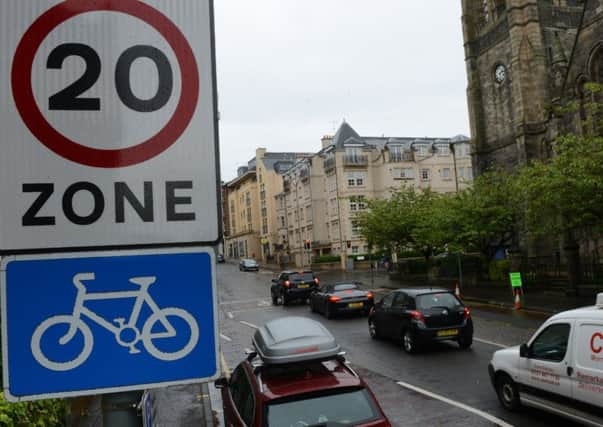Minister Derek Mackay calls for compulsory 20mph speed limits


He said that more widespread introduction of the lower limit would improve driver compliance, helping to cut casualties. Edinburgh is the only city planning to cuts speeds to 20mph on most roads, after a trial that started four years ago. Twenty miles per hour zones elsewhere include in Highland towns such as Cromarty, and parts of Cockenzie, Dunbar, North Berwick and Tranent in East Lothian.
The Scottish Government’s Transport Scotland agency launched a pilot 20mph limit on the A77 trunk road through Maybole in Ayrshire last September, with similar schemes planned on similar roads it controls in Largs, Biggar, Langholm and Oban.
Advertisement
Hide AdAdvertisement
Hide AdThere are also advisory 20mph zones in some areas, such as parts of Glasgow.
In an interview with The Scotsman, Mr Mackay said: “If 20mph limits are seen to be more widespread and legally enforceable, they would be taken more seriously and there would be higher compliance.
“I can’t direct from the centre, but encourage councils to do what’s appropriate for them in built-up and residential areas.
“Edinburgh has made good progress, and other local authorities might want to follow. An edict would be too blunt an instrument and not well received.”
Mr Mackay said funding should not be a stumbling block because 20mph schemes were not expensive to introduce, but he conceded that some councils may be waiting to see how Edinburgh’s city-wide scheme fared.
Glasgow is introducing a 20mph limit in the city centre, and in Dowanhill in the west end. However, Midlothian Council said last week that it had no money for new schemes after making a trial in Lasswade permanent.
Anna Semlyen, campaign manager of lobby group 20’s Plenty for Us, said: “20mph limits have been proven to work in Edinburgh and we urge Scotland to agree the national default at 20mph.
“This would both be a very cost-effective and popular way of giving people safer places to be.”
Advertisement
Hide AdAdvertisement
Hide AdStuart Hay, director of Living Streets Scotland, which campaigns for pedestrians, said: “It’s encouraging that the transport minister is backing 20mph as the most appropriate speed for urban areas.
“Lower speeds are vital for safety, and boosting cycling and walking on Scotland’s streets.”
However, Neil Greig, the Scotland-based policy and research director of the Institute of Advanced Motorists, opposed a blanket introduction.
He said: “A default 20mph in towns and cities might simplify the situation in some ways, but it would not address the fundamental point that drivers take their speed cues from the road environment.
“If a road looks safe above 20mph, that is the speed that many will choose. Blanket bans are too broad brush, and enforcing them would consume police time.
“Resources should be concentrated on those roads with a speed-related accident problem, and those with high pedestrian and cycling flows.
“The real need is for investment in high-quality shared or properly-segregated infrastructure, such as cycle paths, so people of all ages and abilities can feel safe walking or cycling in our cities.”
A spokesman for local authority umbrella group Cosla said: “It is up to each local authority, based on local need and circumstance.”